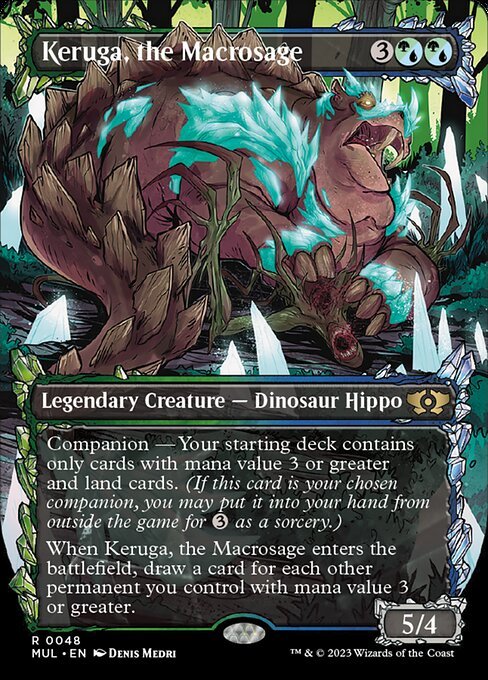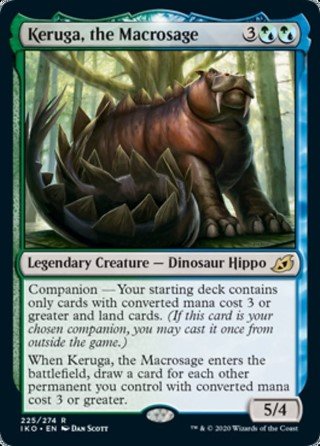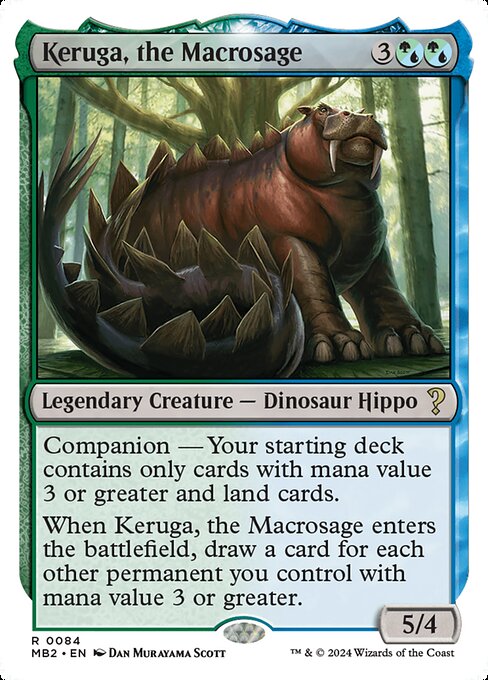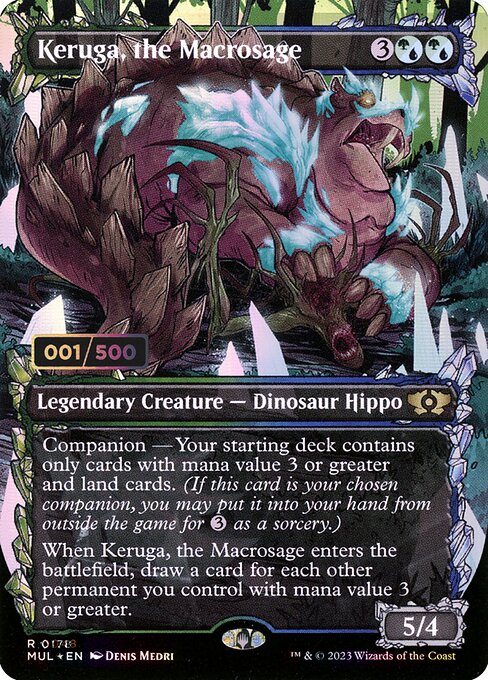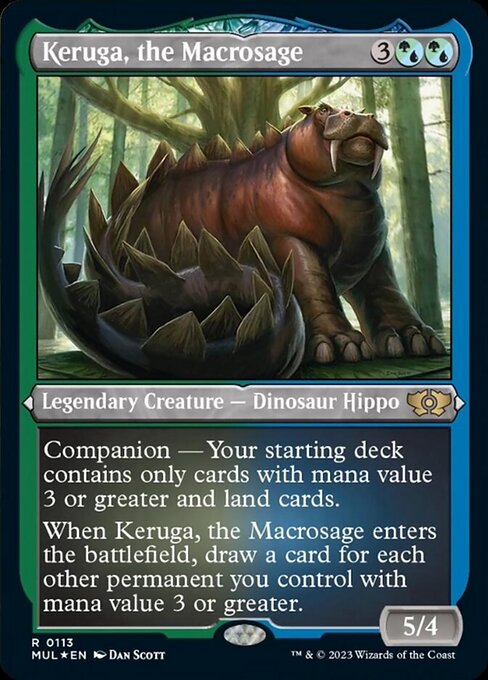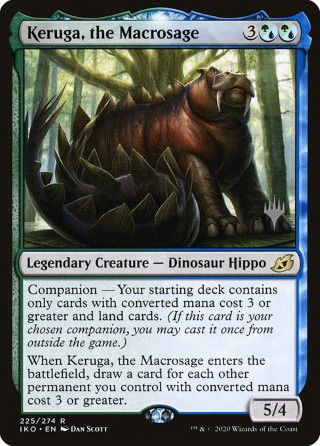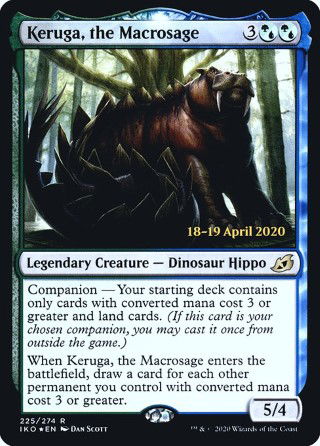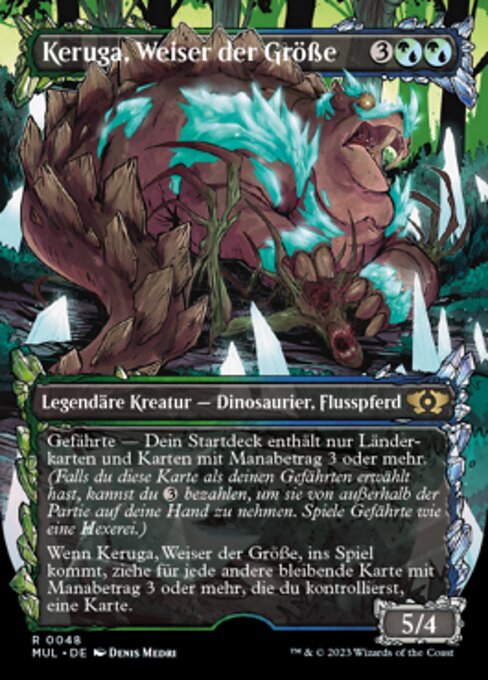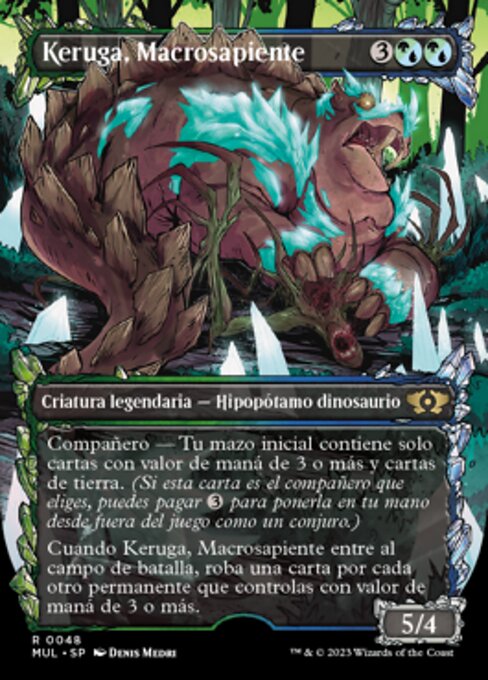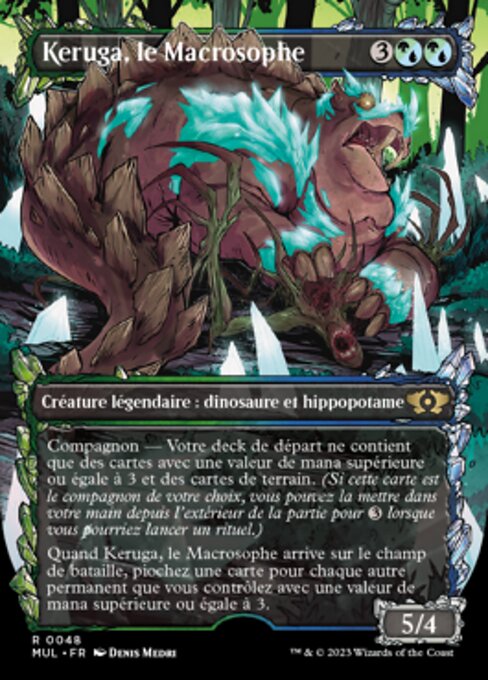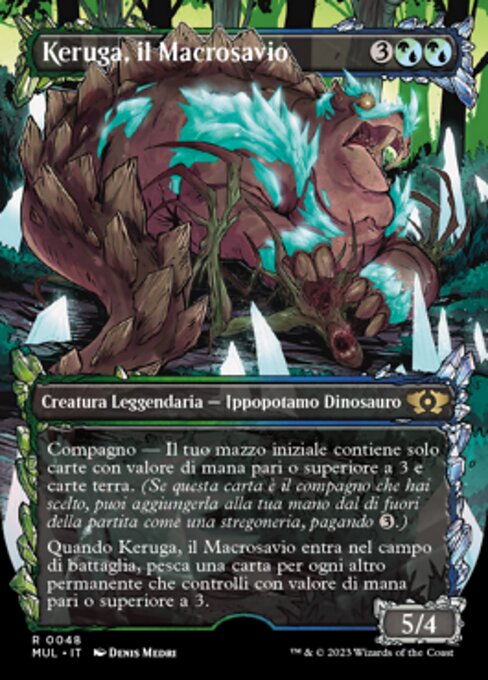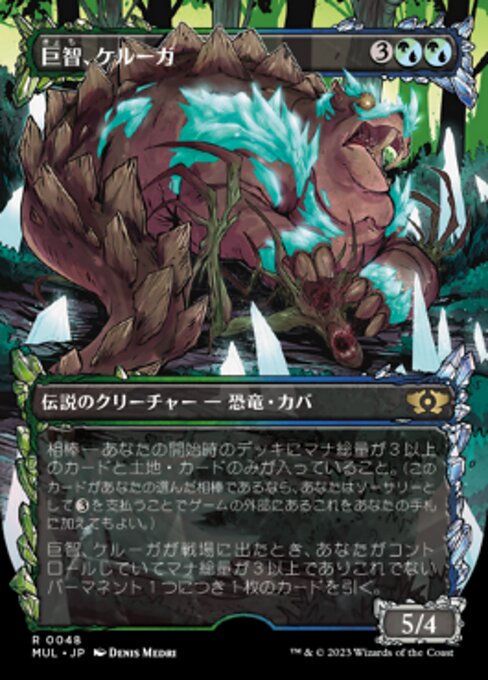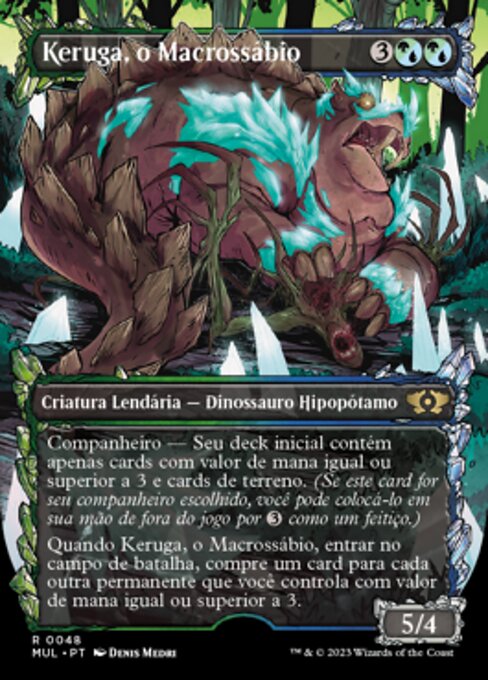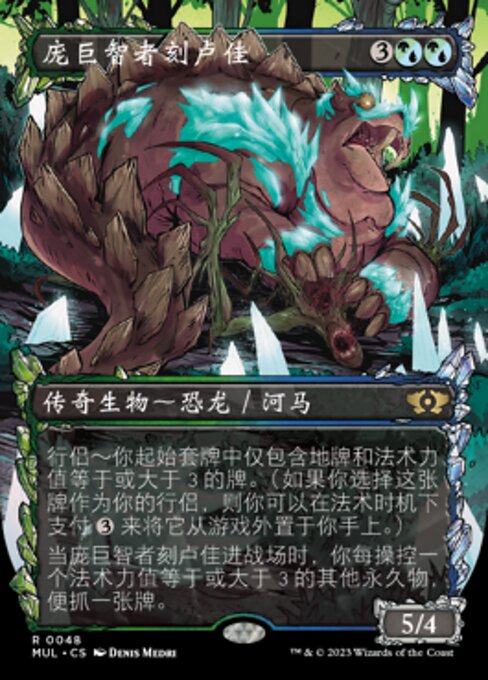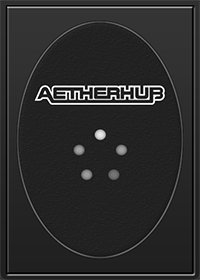
Keruga, the Macrosage
Legendary Creature — Dinosaur Hippo
Companion — Your starting deck contains only cards with mana value 3 or greater and land cards. (If this card is your chosen companion, you may put it into your hand from outside the game for any time you could cast a sorcery.)
When Keruga, the Macrosage enters the battlefield, draw a card for each other permanent you control with mana value 3 or greater.
|
Multiverse Legends (MUL)
#48, Rare |
Illustrated by: Denis Medri
Multiverse ID: 611353
Not Legal Alchemy BO1
Not Legal Standard BO1
Not Legal Brawl
Not Legal Pauper
Not Legal Traditional Standard
Not Legal Traditional Alchemy
Rulings
- 2020-04-17
Your companion begins the game outside the game. In tournament play, this means your sideboard. In casual play, it’s simply a card you own that’s not in your starting deck. - 2020-04-17
Before shuffling your deck to become your library, you may reveal one card from outside the game to be your companion if your starting deck meets the requirements of the companion ability. You can’t reveal more than one. It remains revealed outside the game as the game begins. - 2020-04-17
The requirements of the companion ability apply only to your starting deck. They do not apply to your sideboard. - 2020-04-17
If a card in a player’s deck or a permanent on the battlefield has in its mana cost, X is considered to be 0. - 2020-04-17
The companion’s other abilities apply only if the creature is on the battlefield. They have no effect while the companion is outside the game. - 2020-04-17
The companion ability has no effect if the card is in your starting deck and creates no restriction on putting a card with a companion ability into your starting deck. For example, Zirda may be in your starting deck even if your other permanent cards don’t all have activated abilities. - 2020-04-17
You may have one companion in the Commander variant. Your deck, including your commander, must meet its companion requirement. Your companion is not one of your one hundred cards. - 2020-04-17
If more than one player wishes to reveal a companion, the starting player does so first, and players proceed in turn order. Once a player has chosen not to reveal a companion, that player can’t change their mind. - 2020-04-17
The converted mana cost of a token that isn’t a copy of another object is 0. A token that is a copy of another object has the same mana cost as that object. - 2020-06-01
Paying to put your companion into your hand is a special action. It doesn't use the stack and players can't respond to it. Once you take this action, you may cast that card if it's legal to do so before any other player can take actions. - 2020-06-01
If you reveal a companion outside the game, for as long as it remains there, you may pay any time you could cast a sorcery (that is, you have priority during your main phase and the stack is empty). Once you do, you put it into your hand and behaves like any other card you've brought into the game. For example, if it's discarded, countered, or destroyed, it's put into your graveyard, remaining in the game. This is a change from previous rules. - 2020-04-17
Before shuffling your deck to become your library, you may reveal one card from outside the game to be your companion if your starting deck meets the requirements of the companion ability. You can't reveal more than one. It remains revealed outside the game as the game begins. - 2020-04-17
If more than one player wishes to reveal a companion, the starting player does so first, and players proceed in turn order. Once a player has chosen not to reveal a companion, that player can't change their mind. - 2020-04-17
The mana value of a token that isn't a copy of another object is 0. A token that is a copy of another object has the same mana cost as that object. - 2020-04-17
If a card in a player's deck or a permanent on the battlefield has in its mana cost, X is considered to be 0. - 2020-04-17
If you reveal a companion outside the game, for as long as it remains there, you may pay any time you could cast a sorcery (that is, you have priority during your main phase and the stack is empty). Once you do, you put it into your hand and behaves like any other card you've brought into the game. For example, if it's discard, countered, or destroyed, it's put into your graveyard, remaining in the game. This is a change from previous rules. - 2020-04-17
The companion's other abilities apply only if the creature is on the battlefield. They have no effect while the companion is outside the game. - 2020-04-17
The companion ability has no effect if the card is in your starting deck and creates no restriction on putting a card with a companion ability into your starting deck. For example, Zirda may be in your starting deck even if your other permanent cards don't all have activated abilities. - 2020-04-17
Your companion begins the game outside the game. In tournament play, this means your sideboard. In casual play, it's simply a card you own that's not in your starting deck.
| PRINTS | USD | EUR | Tix | |
|---|---|---|---|---|
|
|
$0.35 | 0.02 | ||
|
|
$0.38 | €0.17 | 0.02 | |
|
|
$0.50 | €0.29 | ||
|
|
||||
|
|
$5.70 | |||
|
|
0.56 | |||
|
|
||||
|
|
USD Non-foil
USD Foil
Languages
| German | ||
| Spanish | ||
| French | ||
| Italian | ||
| Japanese | ||
| Portuguese | ||
| Chinese |

